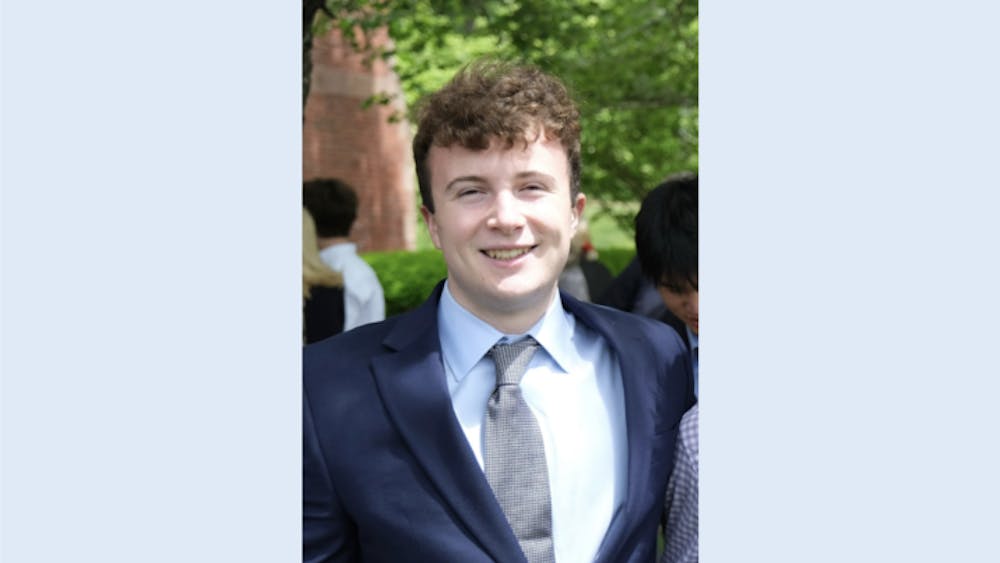About 150 School of Integrative Plant Science students, faculty and supporters assembled outside of Mann Library at 3 p.m. on Thursday. Protestors carried signs demanding access to science for all in the face of recent executive orders and echoed chants for “human need, not corporate greed.”
Speakers called for members of the Ithaca community to “stand up for science,” emphasizing the loss of research funding through National Institutes of Health grants and the backpedaling of diversity, equity and inclusion initiatives at universities under the Trump administration.
In response to President Trump's Jan. 20 executive order on Unleashing American Energy, the U.S. Department of Agriculture recently froze funding to the Partnerships for Climate-Smart Commodities, along with funding to environmental conservation programs funded by former President Joe Biden’s 2022 Inflation Reduction Act.
While the U.S. Environmental Protection Agency has begun to unfreeze certain funding of climate programs, farmers and scientific researchers remain at risk due to cuts to federal agencies including the USDA, NIH and the National Science Foundation.
“Executive orders from the current administration have created chaos [and] uncertainty and have disrupted the scientific community across the country,” said Prof. Cynthia Leifer, immunology, to the crowd. She highlighted the potential loss of research trainees due to uncertainty about the funding of research programs, which would prevent faculty from accepting graduate students.
“We don’t want to lose a generation of talented and highly motivated researchers,” Liefer said.
The crowd carried a variety of signs, with some reading, “Science is not propaganda,” “Science saves lives,” “Stand up for science” and “Will an apple a day keep Trump away?”
A variety of speakers stepped forward, including Andrew Scheldorf, a post-doctoral associate in SIPS who described the impact of the recent executive orders on the transgender community.
“[The orders make] it impossible for trans people to do their work. … Removing required healthcare prevents them from contributing to science and being a part of this community,” Scheldorf explained.
Annika Rowland ’23 also attended the event. Rowland earned her master’s degree in soil and crop sciences from Cornell and now works with farmers in Ithaca to advocate for sustainable agriculture. Rowland helps manage a federal grant from the Partnerships for Climate-Smart Commodities funding pool and works with local farmers to distribute incentive payments to develop sustainable agriculture practices.
Due to the loss of federal funding, Rowland has had to inform several farmers in the past week that their projects can no longer receive financial support. She also shared that she will likely have to leave her position at Pasa Sustainable Agriculture due to a lack of funding.
In addition to farmers, these cuts will likely have devastating effects on scientific researchers, Rowland said.
“A lot of essential research, especially for healthcare, is going to be put on stop, and a lot of people who require essential health services will be put on the line,” Rowland said.
SIPS graduate student Luke Thompson read an anonymous letter from a fired USDA employee aloud, which detailed the loss of their position as a scientist at the USDA Agricultural Research Service about 1.5 years into a three-year probation.
“Even though some people are getting hired again, it's complicated,” Thompson said. “People are basically destroying USDA-associated labs at Cornell and people have lost their jobs, so I'm coming out here to support them [and] to organize and to help get mutual aid for them.”
Olga Khmelnitsky is a second-year Ph.D. student in plant pathology who helped to organize the demonstration. She described SIPS Community Advocacy as “a group of graduates that are tuned in to graduate needs and advocate for science in general.”
When asked about her motivation to attend the event, Khmelnitsky highlighted the stories of peers and friends in the graduate community who had either lost their lab’s principal investigator or had federal grants frozen.
“When so many of our peers have been affected by the federal funding cuts, it really becomes our role to build structures of mutual aid and strengthen our community,” Khmelnitsky said.
Emma Cohen ’28 is a Sun staff writer and can be reached at ecohen@cornellsun.com.










